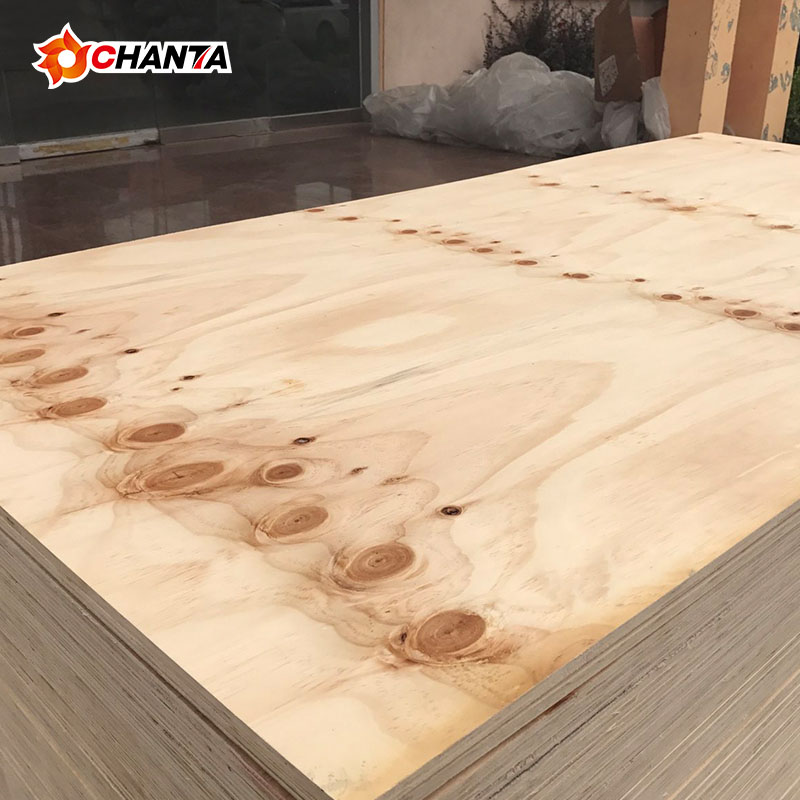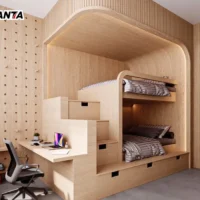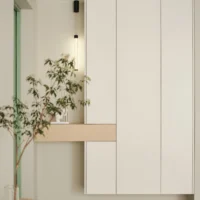Commercial plywood is a popular material used in construction and furniture making, known for its strength and affordability. It is made by bonding multiple layers of wood veneers together under high heat and pressure. This versatile material is suitable for interior decoration and various industrial applications. Below, we’ll explore the features, types, benefits, and applications of commercial plywood in detail.
1. Characteristics of Commercial Plywood
Commercial plywood offers excellent physical properties. The structure of layered veneers placed at right angles enhances the plywood’s bending strength and stability. Whether for furniture or interior decoration, it performs well under impact. Additionally, commercial plywood uses eco-friendly adhesives during manufacturing, resulting in low formaldehyde emissions, which meets modern green building standards.
2. Types of Commercial Plywood
Commercial plywood comes in various types, depending on the wood source and intended usage:
- Softwood Commercial Plywood: Made from softwoods like pine or cedar, it is lighter and suitable for light furniture and decorative uses.
- Hardwood Commercial Plywood: Composed of hardwoods like oak or beech, it provides higher strength and is ideal for heavy-duty furniture and construction.
- Waterproof Commercial Plywood: This plywood has a waterproof coating, making it suitable for damp environments like kitchens and bathrooms.
Each type has unique features, and choosing the right one depends on the intended application.
3. Advantages of Commercial Plywood
Compared to other wood materials, commercial plywood offers distinct advantages:
- Cost-Effective: Hardwood commercial plywood is budget-friendly, making it ideal for large-scale applications.
- Lightweight and Strong: It has good bending and compressive strength, while being lighter than many solid woods.
- Easy to Process: Commercial plywood is easy to cut, shape, and sand, allowing for customized sizes and shapes.
- Environmentally Friendly: Modern production methods keep formaldehyde emissions low, meeting environmental standards.
These features give commercial plywood a competitive edge in the market, fulfilling a wide range of consumer needs.
4. Applications of Commercial Plywood
Commercial plywood is widely used in construction, decoration, and furniture making. Here are a few common applications:
- Furniture Production: It is ideal for making tables, chairs, wardrobes, and more due to its durability and appealing appearance.
- Interior Decoration: Used in wall panels, ceilings, and partitions, it provides a stable and attractive finish.
- Construction Projects: On construction sites, it’s often used as temporary partitions or support material.
- Packaging Industry: Due to its lightweight quality, commercial plywood is a popular material for transport packaging boxes.
5. How to Choose the Right Commercial Plywood
When choosing commercial plywood, consider its intended purpose. For interior use, environmentally friendly plywood is a priority. For outdoor use, waterproof plywood is recommended. Additionally, checking the thickness and strength ensures it meets the requirements of your specific project.
Conclusion
Commercial plywood is an ideal material in modern construction and furniture manufacturing because of its affordability, versatility, and eco-friendly characteristics. Understanding the various types of commercial plywood helps you select the right product for your needs. By choosing and using commercial plywood effectively, you can enhance project quality while keeping costs manageable.




















